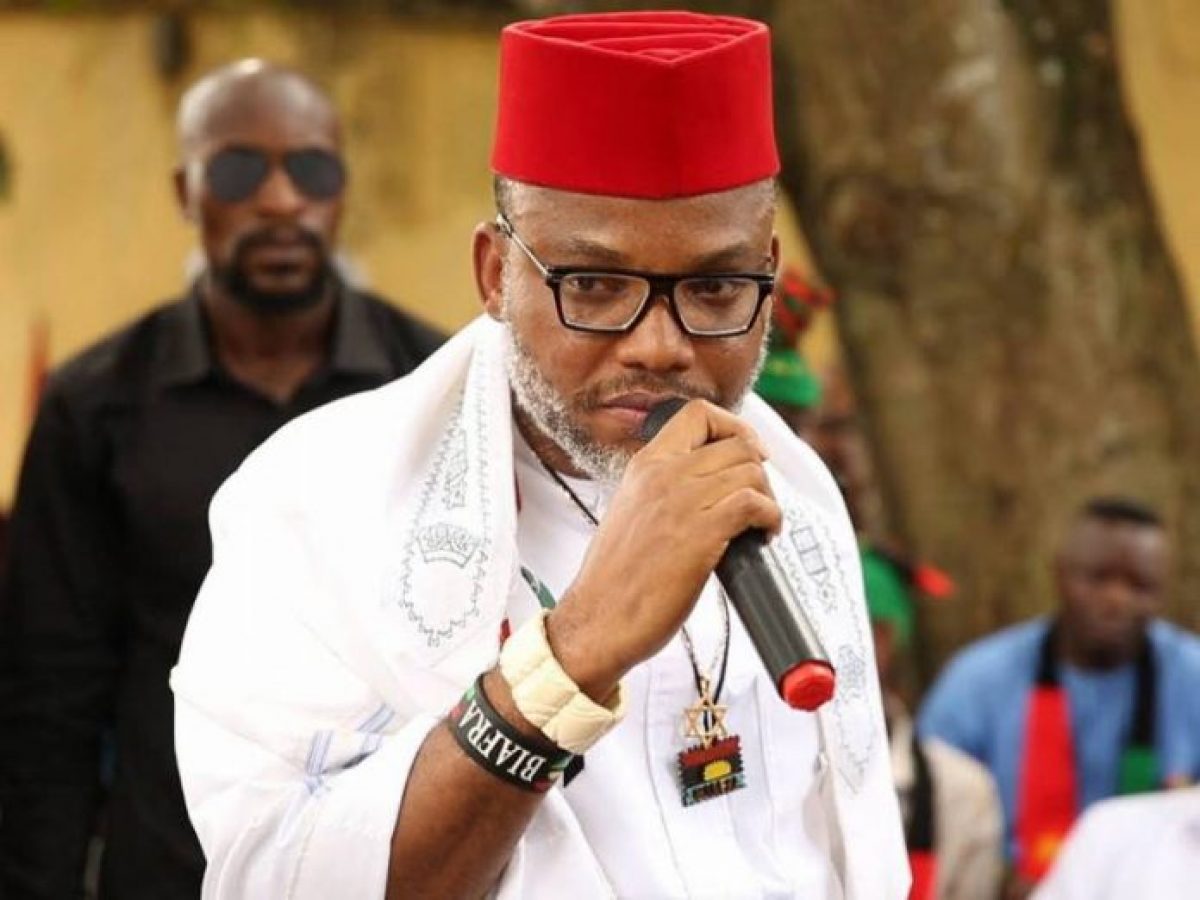ABUJA, Nigeria — Nnamdi Kanu, leader of the Indigenous People of Biafra (IPOB), told a Federal High Court on Wednesday, May 28, 2025, that he was threatened by a Department of State Services (DSS) operative to make confessional statements following his arrest in 2015.
The claim came as the court concluded a trial-within-a-trial to determine the voluntariness of his statements to security agents.
Kanu made the allegations after the prosecution, led by senior advocate Adegboyega Awomolo, presented its third witness, identified only as “CCC”, a DSS operative who participated in the 2015 investigation of the IPOB leader.
CCC testified that he and two other officers had interviewed Kanu over several days in October and November 2015 and that the interviews were video recorded, with Kanu providing handwritten statements after each session.
The prosecution submitted two video compact discs containing the recorded interviews and three alleged written statements by Kanu as exhibits.
While initially unopposed, the defence team led by Paul Erokoro (SAN) later raised objections, claiming Kanu’s statements were obtained under duress.
Erokoro told the court that DSS operatives had denied Kanu access to legal counsel during his detention, threatened to withhold his daily one-hour outdoor break recommended for medical reasons, and pressured him to cooperate.
The presiding judge, Justice James Omotosho, ordered a trial-within-a-trial to determine the admissibility of the statements.
During the closed proceedings, Kanu detailed his experience from the point of arrest, alleging that his hands and feet were shackled, and he was blindfolded while transported to Abuja.
“I did not know where they were taking me after landing in Abuja,” Kanu said through his lawyer.
“They kept me in solitary confinement with no form of light. Mr Brown, who was introduced as the assistant director of investigations, threatened me to cooperate during the interview or remain in solitary.”
Kanu further testified that due to poor health and the conditions of his cell, he began to suffer nosebleeds.
He said the facility’s medical personnel recommended daily exposure to fresh air, which the DSS allegedly used as leverage.
“Mr Brown threatened me that if I don’t do what they ask me, they’re going to stop giving me that one-hour break,” he said.
Under cross-examination, Kanu maintained that the DSS compelled him to write the statements and alleged that segments of the video interviews played in court had been edited.
The DSS witness, CCC, denied any knowledge of threats or coercion.
When questioned by Erokoro, he acknowledged not entering Kanu’s cell but said he was familiar with the gatekeepers who had access to the defendant.
“I put it to you that if any DSS officer named Mr Brown visited the defendant in his cell to threaten him, you won’t know,” Erokoro said.
In response, CCC stated: “The DSS does not operate like that.”
Following the testimonies, Justice Omotosho closed the trial-within-a-trial and directed both the prosecution and defence teams to adopt and submit their final written addresses by 9 a.m. on Thursday, May 29, 2025.
The court is expected to rule on the admissibility of the statements the same day, a decision that could significantly impact the trajectory of the ongoing trial.







